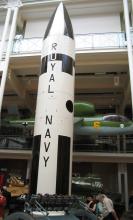The Shifting Dynamics of UK-US Nuclear Weapons Cooperation: From the 1958 Mutual Defense Agreement to Today

The UK and US have cooperated on nuclear weapons development under the 1958 Mutual Defense Agreement (MDA). This agreement is currently being amended to remain in force indefinitely, eliminating the need for its renewal every ten years. This raises important questions: Has UK-US nuclear cooperation remained steady since 1958? Is the renewal of the agreement merely a formality, or have there been factors that have strained the relationship over time?
Historical evidence suggests that cooperation has indeed fluctuated. For example, the below memo prepared for the UK Secretary of State for Defense in September 1987 reveals concerns about the UK's growing dependence on the US for certain non-operational aspects of its nuclear program. The memo aimed to "provide information on the obligations that the US is under to continue providing the UK with assistance and information on nuclear matters, and how easily these could be withdrawn."
The memo concluded that the "continuing exchange of information under the agreement is very much dependent on a US assessment of UK credibility." It also examined the Polaris Sales Agreement, which allows the UK access to Trident missiles and other submarine technology, concluding that the legal and contractual obligations on the US were as secure as the UK could reasonably expect. However, despite the perceived commitment to nuclear cooperation, British officials in the 1980s were still worried about overreliance on the US and the possibility that the cooperation could be cut off.
The memo further highlighted historical periods when cooperation was restricted. Notably, between 1963 and 1971, when the UK halted nuclear weapons testing, the US "withdrew support from all but basic technology matters."
If the UK's credibility was a key factor in maintaining US cooperation in the 1980s, what sustains this cooperation today? British officials may point to the UK's Nuclear Warhead Capability Sustainment Programme as evidence of continued credibility. However, the reality is that the main driver of UK-US nuclear cooperation is not technical but political. The move to extend the 1958 Mutual Defense Agreement indefinitely reflects the belief that the political relationship between the UK and US is seen by the Biden administration stable and enduring. It may also reflect a broader effort to safeguard US allied relationships from the uncertanty of a possible second Trump presidential term.